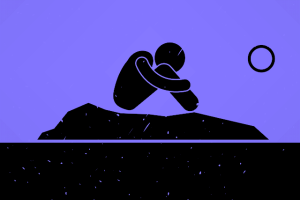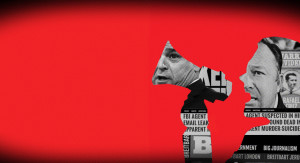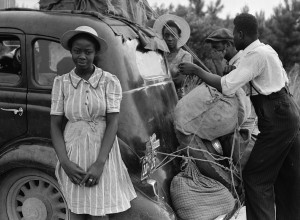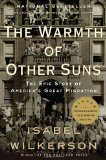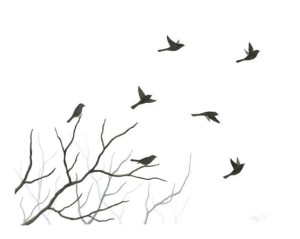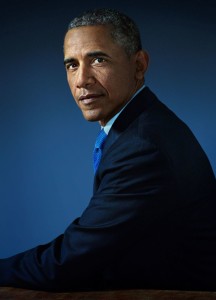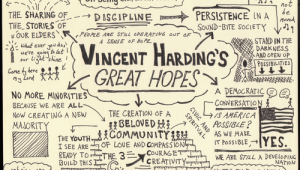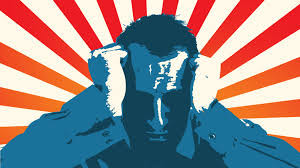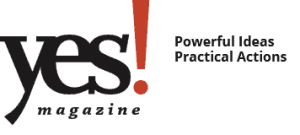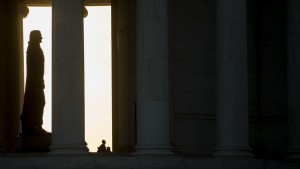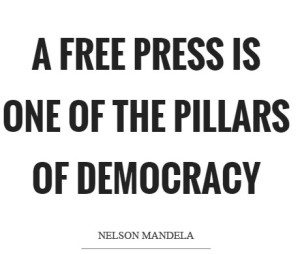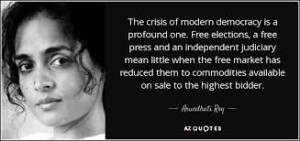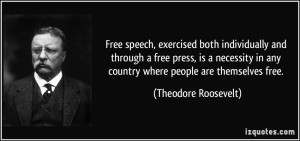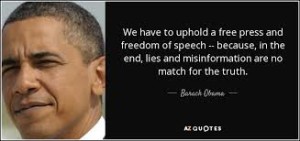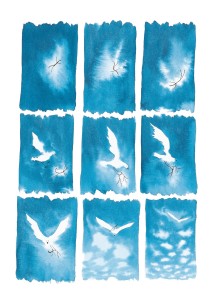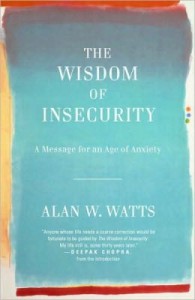Because it’s not personal. And a caste system is a structure that we have inherited, that we did not create, that we don’t — there’s no point in pointing fingers about it, but it’s something that we — recognizing it is the first step toward dismantling it.
Today I rise.
November 29, 2016
Inequality media.
Robert Reich
Flash Drives
Seth Godin
—
Fear, loneliness, anger, shame & hunger.
They drive us. They divide us. They take us away from our work, our mission, our ability to make a difference. And yet, sometimes, they fuel our motion, leading to growth and connection.
When a variety of FLASH shows up, it almost never calls itself by name. Instead, it lashes out. It criticizes what we’ve made or done. And mostly, it hides behind words, argument and actions, instead of revealing itself.
As you’ve guessed, correcting the false argument is futile. Logic doesn’t work either. You can’t reason with FLASH because it is, by definition, unreasonable.
Worth repeating that: We’re rarely reasonable. Most of the time, we’re afraid, lonely, angry, shameful or hungry.
Sometimes, we can address those emotions by seeing that reason can help our problem, but mostly, we start and end with the emotion.
Recognize it.
Pause to allow it be seen and heard.
And then, if we’re willing, we can dance with it. We can put the arguments aside, the demands and the expectations and sit with the emotion. Not get defensive, because the emotion isn’t about us or our work at all.
Then, maybe, we can begin to bring civilization back into the conversation, the story of us, the opportunity for growth and connection, and ultimately, the power of thought and reason and forward motion.
Media in the age of Trump.
‘You think the truth took a hit last year? It’s about to get worse. A lot worse.’
Welcome to the media in the Age of Trump.
- False rhetoric.
- False equivalency.
- Hyperbole.
- Ad hominum.
Charles Sykes/Politico Magazine
All of this was a long time coming.
[…]
Trump’s victory means that the most extreme and recklessly irresponsible voices on the right now feel emboldened and empowered. And more worrisome than that, they have an ally in the White House. The new media will not only provide propaganda cover for the administration, but also direct the fire of a loose confederation of conservative outlets against critics and dissenters.
[…]
So what is this brave new conservative media going to look like? Probably more like Alex Jones than National Review. The appointment of Breitbart’s Steve Bannon as chief adviser to the president-elect was the new regime’s implicit imprimatur on the new conservative media. But perhaps the most revealing moment was Trump’s reported call, on the Monday after the election, to Infowars’ Alex Jones to thank him for his support in the campaign.
Jones is not your garden-variety conspiracy theorist. He is a 9/11 truther, who believes the U.S. government conspired in the attacks to justify the creation of a police state. He has suggested that the government also may have been behind the bombings in Oklahoma City, which killed 168 people, and at the Boston Marathon, which killed three. And he has repeatedly suggested that the Sandy Hook shootings were a “hoax,” “synthetic” and “completely fake.” He also thinks the government wants to “encourage homosexuality so people don’t have children” and said that Hillary Clinton was “a frickin’ demon and she stinks and so does Obama.”
http://www.politico.com/magazine/story/2016/11/donald-trump-conservative-media-charlie-sykes-214483
Beyond hope.
November 26, 2016Derrick Jensen/Orion Magazine
“…life is really, really good. I am a complex enough being that I can hold in my heart the understanding that we are really, really fucked, and at the same time that life is really, really good. I am full of rage, sorrow, joy, love, hate, despair, happiness, satisfaction, dissatisfaction, and a thousand other feelings. We are really fucked. Life is still really good.”
—
Hope is what keeps us chained to the system, the conglomerate of people and ideas and ideals that is causing the destruction of the Earth.
False hopes bind us to unlivable situations, and blind us to real possibilities.
Things will not be okay. They are already not okay, and they’re getting worse. Rapidly.
To hope for some result means you have given up any agency concerning it. […] They’ve stepped away from their own ability to participate in stopping it.
We simply do the work.
I am a complex enough being that I can hold in my heart the understanding that we are really, really fucked, and at the same time that life is really, really good. I am full of rage, sorrow, joy, love, hate, despair, happiness, satisfaction, dissatisfaction, and a thousand other feelings. We are really fucked. Life is still really good.
When you give up on hope, you turn away from fear.
And when you quit relying on hope, and instead begin to protect the people, things, and places you love, you become very dangerous indeed to those in power.
In case you’re wondering, that’s a very good thing.
‘caste system, the artificial hierarchy’
November 23, 2016You cannot diagnose a problem until you know the history of the problem that you’re trying to resolve.
The heart is the last frontier.
They were forced to seek political asylum within the borders of their own country because they were living in a caste system in the South that did not recognize their citizenship. And some of them travelled farther than current day immigrants might, but that was really not the point. The point was that the country actually was kind of two countries in one, and that’s what they had to do.
[…]
It’s about freedom and how far people are willing to go to achieve it. This is the means that they feel they must take in order to find freedom wherever they can find it.
[…]
George Swanson Starling. You asked him what he hoped for in leaving, and he said, “I was hoping I would be able to live as a man and express myself in a manly way” — I’m getting chills — “without the fear of getting lynched at night.”
[…]
These were refugee camps created in our American cities. And as they sought to expand, or if they managed to save whatever they could from these jobs — and a lot of them, new research about the Great Migration is coming out showing that they actually worked multiple jobs.
So they were actually making more money, but it wasn’t going as far because there were so many coming in, flooding these neighborhoods that were being hemmed in and pressed against. And that was the world that they had entered. They were living in the Vice Districts. I mean, all of the things that make for every possible disadvantage that you can have going in — that’s what they were facing.
Your existence, by definition, prohibited you from getting a standard mortgage. And so they would then get mortgages on the second market — secondary market which meant they were paying exorbitant rates. This is sounding very much like 2006 and 2007 for us now. And so this is all setting in motion all of these forces that were making it even more difficult for people to succeed in these big places, the cities of refuge for the people of the Great Migration.
[…]
[…]
Because, ultimately, what this migration was — and I think people are identifying it — is that it’s an unleashing of this pent-up creativity and genius, in many cases, of people miscast in this caste system.
You think about those cotton fields, and those rice plantations, and those tobacco fields, and on all of those cotton fields, and tobacco plantations, and rice plantations were opera singers, and jazz musicians, and poets, and professors, defense attorneys, doctors — I mean, that’s — this is the manifestation of the desire to be free and what was lost to the country. Because for centuries, for 246 years of enslavement — and I have to remind people — 12 generations of enslavement, 12 generations of enslavement. How many “greats” do you add to “grandparent” to get that back to 1619 until 1863? And that gives you a sense of how long all of these people were miscast into an artificial hierarchy as to what they were permitted to do, or risk death if they did not do that.
And one fact about this whole idea of where we are right now just sort of cosmically, I think, in terms of this — let me put it this way: no adult alive today will live to see a time when the time of enslavement was equal to the time of freedom. And so that shows you that this history is long, and the history is deep.
[…]
The Warmth of Other Suns by Isabel Wilkerson. It is, hands down, the best work of nonfiction I have ever read. It tells the story of how the Jim Crow laws and their accompanying attitudes shaped the lives of three black Americans who came north during the 20th century. When I was reading it, I kept saying over and over again” — just like — “‘I had no idea. I had no idea.’”
And then, “We may be clueless and awkward around the subject of race, but we know what the Gospel demands. That we keep working at being better neighbors.” I think about that so much these days, about this work of knowing our neighbors who are strangers, and that that, in fact, is the immediate work that, in fact, is not evident how we do it because we’re so segregated in so many ways in our communities, but it’s possible. People must ask you this question. I wonder how — if there’s advice you give or thoughts you — that’s terrible — or thoughts you have about this work of coming to know our neighbors who are strangers, of being neighbors, just that.
[…]
I also believe that, in the time of working on this book — it’s multi-disciplinary. There’s sociology, there’s psychology, there’s economics. All of these things are in there. But I think the foundation of all of those disciplines comes down to the history. When you go to the doctor, before you can even see the doctor, the very first thing they do is they give you all of these pages to fill out. And they — before the doctor will even see you, he wants to know your history. He doesn’t want to know just your history, he wants to know your mother’s history. He wants to know your father’s history. They may go back to your grandmother and your grandfather on both sides. And that’s before he will even see you. You cannot diagnose a problem until you know the history of the problem that you’re trying to resolve.
[…]
“Over the decades, perhaps the wrong questions have been asked about the Great Migration. Perhaps it is not a question of whether the migrants brought good or will so the cities they fled to or were pushed or pulled to their destinations, but a question of how they summoned the courage to leave in the first place or how they found the will to press beyond the forces against them and the faith in a country that had rejected them for so long. By their actions, they did not dream the American Dream, they willed it into being by a definition of their own choosing. They did not ask to be accepted but declared themselves the Americans that perhaps few others recognized but that they had always been deep within their hearts.”
[…]
Our country is like a really old house. I love old houses. I’ve always lived in old houses. But old houses need a lot of work. And the work is never done. And just when you think you’ve finished one renovation, it’s time to do something else. Something else has gone wrong.
And that’s what our country is like. And you may not want to go into that basement, but if you really don’t go into that basement, it’s at your own peril. And I think that whatever you are ignoring is not going to go away. Whatever you’re ignoring is only going to get worse. Whatever you’re ignoring will be there to be reckoned with until you reckon with it. And I think that that’s what we’re called upon to do where we are right now.
[…]
I came to believe and to know that we all have so much more in common than we’ve been led to believe and that we’ve been sadly, tragically assigned roles as if we’re in a play, and this is what these people do, and this is what these people do, and this is what these people do. And the tragedy is that, regardless of which assignment that you had been put into, that might not have been your strength at all.
Every time I talk about it, I gain new appreciation and gratitude and amazement at what they were able to do. One of the things that I hope to do was to bring invisible people into the light. They never were being written about.
http://www.onbeing.org/program/isabel-wilkerson-the-heart-is-the-last-frontier/9043
[photo: A group of migrants from Florida rest near Shawboro, North Carolina on their way to work on a potato farm in Cranberry, New Jersey. July 1940. Jack Delano, photographer/Library of Congress]
We organize, and run.
RUNNING FOR OFFICE
P.G. Sittenfeld
Policy.Mic
The will of millennials did not prevail this election cycle, as seen in the map that went viral showing that if millennials alone decided the outcome, Hillary would have won.
So the question now is: What can we do about it?
One of the biggest and boldest actions is for more millennials to actually run for office.
- Know why you’re running
- Build your own team
- Hone your message
- Constantly seek feedback, including from people who disagree with you
- Yes, money matters
- Prepare for it to be all-consuming
- Getting the media’s attention isn’t easy
- Credibility is transferable
- You have to really, truly believe you will win
- Don’t let people discourage you
Trust.
As God cares for the birds, who do not gather into barns, so shall we be cared for if we trust and do not doubt.
-Science of Mind
‘People are complicated…it’s messy.’
November 18, 2016THE NEW YORKER
Obama Reckons With a Trump Presidency
by David Redneck
Inside a stunned White House, the President considers his legacy and America’s future
How did he speak with his two daughters about the election results, about the post-election reports of racial incidents? “What I say to them is that people are complicated,” Obama told me. “Societies and cultures are really complicated. . . . This is not mathematics; this is biology and chemistry. These are living organisms, and it’s messy. And your job as a citizen and as a decent human being is to constantly affirm and lift up and fight for treating people with kindness and respect and understanding. And you should anticipate that at any given moment there’s going to be flare-ups of bigotry that you may have to confront, or may be inside you and you have to vanquish. And it doesn’t stop. . . . You don’t get into a fetal position about it. You don’t start worrying about apocalypse. You say, O.K., where are the places where I can push to keep it moving forward.”
[…]
There is no denying the depths of Obama’s humbling. He fully grasps the nature of the bigotry and the nihilism that Trump has espoused in the name of working-class empowerment. Obama’s way is to keep cool while insisting on, and embodying, a faith in institutions.
[…]
In the new media universe:
I have complete confidence in the American people—that if I can have a conversation with them they’ll choose what’s right. At an emotional level, they want to do the right thing if they have the information.” And yet in an age of filter bubbles and social-media silos, he knew, the “information” that reached people was increasingly shaped by what they wanted to be true. And that was no longer in his hands or anyone else’s.
[…]
Those closest to Obama at the White House say that he copes by quietly, sarcastically deflating the attacks—like letting the air out of a balloon slowly, one said, the better not to make too much noise. He never loses his capacity to be the scholar of his own predicament, a gently quizzical ethnographer of his own country, of its best and worst qualities. In private, Michelle Obama gives clearer voice to the frustrations, and, not least, to a concern about the racism that is apparent to them both. In public—in one of the most memorable speeches of the campaign—she spoke out ferociously against Trump’s misogyny.
[…]
Obama does not believe in the simplistic form of American exceptionalism which insists that Americans are more talented and virtuous than everyone else, that they are blessed by a patriotic God with a special mission. America is a country that was established on the ideas of Enlightenment philosophers and improved upon not merely by legislation but also by social movements: this, to Obama, is the real nature of its exceptionalism. Last year, at the fiftieth anniversary of the Selma-to-Montgomery march, he stood on the Edmund Pettus Bridge, in Selma, and defined American exceptionalism as embodied by its heroes, its freedom fighters: Sojourner Truth, Susan B. Anthony, John Lewis, the “gay Americans whose blood ran in the streets of San Francisco and New York”; its Tuskegee Airmen and Navajo code-talkers, its 9/11 volunteers and G.I.s, and its immigrants—Holocaust survivors, Lost Boys of Sudan, and the “hopeful strivers who cross the Rio Grande.”
[…]
Obama had no appetite for superseding the Twenty-second Amendment. “I said no, because, look, at some point you lose touch,” he recounted. “By being in this room. At some point, you get worn down. At some point, you start getting into bad habits. I told her, ‘We’re playing on house money here. We weren’t supposed to be here. For us to have had this opportunity and to be able to make this much change, as much as we wish that we could have gotten everything done, it’s remarkable.’ ”
[…]
Obama dismissed the notion that the Republicans had captured the issue of inequality. “The Republicans don’t care about that issue,” he said. “There’s no pretense that anything that they’re putting forward, any congressional proposals that are going to come forward, will reduce inequality. . . . What I do concern myself with, and the Democratic Party is going to have to concern itself with, is the fact that the confluence of globalization and technology is making the gap between rich and poor, the mismatch in power between capital and labor, greater all the time. And that’s true globally.
“The prescription that some offer, which is stop trade, reduce global integration, I don’t think is going to work,” he went on. “If that’s not going to work, then we’re going to have to redesign the social compact in some fairly fundamental ways over the next twenty years. And I know how to build a bridge to that new social compact. It begins with all the things we’ve talked about in the past—early-childhood education, continuous learning, job training, a basic social safety net, expanding the earned-income tax credit, investments in infrastructure—which, by definition, aren’t shipped overseas. All of those things accelerate growth, give you more of a runway. But at some point, when the problem is not just Uber but driverless Uber, when radiologists are losing their jobs to A.I., then we’re going to have to figure out how do we maintain a cohesive society and a cohesive democracy in which productivity and wealth generation are not automatically linked to how many hours you put in, where the links between production and distribution are broken, in some sense. Because I can sit in my office, do a bunch of stuff, send it out over the Internet, and suddenly I just made a couple of million bucks, and the person who’s looking after my kid while I’m doing that has no leverage to get paid more than ten bucks an hour.”
“I’ll be fifty-five when I leave”—he knocked on a wooden end table—“assuming that I get a couple more decades of good health, at least, then I think both Michelle and I are interested in creating platforms that train, empower, network, boost the next generation of leadership. And I think that, whatever shape my Presidential center takes, I’m less interested in a building and campaign posters and Michelle’s dresses, although I think it’s fair to say that Michelle’s dresses will be the biggest draw by a huge margin. But what we’ll be most interested in is programming that helps the next Michelle Obama or the next Barack Obama, who right now is sitting out there and has no idea how to make their ideals live, isn’t quite sure what to do—to give them resources and ways to think about social change.”
He seemed to be returning to the days when he was a community organizer in the Atgeld Gardens housing project, on the South Side of Chicago. “The thing that I have always been convinced of,” he said, “the running thread through my career, has been this notion that when ordinary people get engaged, pay attention, learn about the forces that affect their lives and are able to join up with others, good stuff happens.”
[…]
American instinct has never been to find isolation in opposite corners. It is to find strength in our common creed, to forge unity from our great diversity, to sustain that strength and unity even when it is hard.
“It’s the example of the single most diverse institution in our country—soldiers, sailors, airmen, marines, and coastguardsmen who represent every corner of our country, every shade of humanity, immigrant and native-born, Christian, Muslim, Jew, and nonbeliever alike, all forged into common service.” His sober cadences gave resonance to words that could have been rote. So did the awareness that just seventy days remained of his Presidency.
[Full article: http://www.newyorker.com/magazine/2016/11/28/obama-reckons-with-a-trump-presidency]
Paulo Freire
Only with everyone filling his or her own political space to the point of civil disobedience as necessary, will empowerment mean anything revolutionary.
First moment of dawn…
November 16, 2016Mark Nepo
A very touching story from the Talmud captures this soft paradox of how we all journey alone together.
A rabbi asks his students, “How do you know the first moment of dawn has arrived?” After a great silence, one pipes up, “When you can tell the difference between a sheep and a dog.” The Rabbit shakes his head no. Another offers, “When you can tell the difference between a fig tree and an olive tree.” Again The Rabbi shakes his head no. There are no other answers.
The Rabbi circles their silence and walks between them, “You know the first moment of dawn has arrived when you look into the eyes of another human being and see yourself.
[Simply breathe your heart open, and try to feel both your aloneness and what you share with every other human being.]
Is America Possible?
November 12, 2016Vincent Harding – – Is America Possible?
In an unsettled political moment, at the end of a divisive campaign, the late, great civil rights elder Vincent Harding is a voice of calm, wisdom, and perspective. He was wise about how the civil rights vision might speak to 21st-century realities. Just as importantly, he pursued this by way of patient yet passionate cross-cultural, cross-generational relationship. He reminded us that the Civil Rights Movement was spiritually as well as politically vigorous; it aspired to a “beloved community,” not merely a tolerant integrated society. He posed and lived a question that is freshly in our midst: Is America possible?
onbeing.org/
Vincent Harding was chairperson of the Veterans of Hope Project at Iliff School of Theology in Denver, where he was professor of Religion and Transformation. His published works include Hope and History: Why We Must Share the Story of the Movement, There Is a River: The Black Struggle for Freedom in America, Martin Luther King: The Inconvenient Hero, and the essay “Is America Possible?”
Transcript:
http://www.onbeing.org/program/vincent-harding-is-america-possible/transcript/9037#main_content
Post Election 2016
“As did many of you, I watched Tuesday night’s returns with a mix of horror and fear. Fear for our warming planet, for our sense of decency, for our future. Those feelings are real and justified, so we should all take the moments we need to understand what has just happened. And then? There is much to be done.
Here are 10 things I will do to ready myself for what lies ahead. You may find them helpful, too.”
1. Ground yourself
Breathe deeply. Go to a favorite spot in nature and really be there. Meditate. Find a favorite poem, reading, religious passage that has helped you before and read it quietly.
2. Allow the grief
Don’t suppress your feelings of fear, dread, anger, grief. Just allow them. But don’t wallow there; move on when you’re ready.
And allow other feelings to arise, too—they may surprise you.
3. Be with friends
This is a time for community. Share your feelings, your insights, your fears—and, especially, your hopes. Hug a lot.
4. Take a media break
Keep up with the news, but turn off the endless rehashing of painful stuff that you already know.
5. Take care of the children
Yours, neighbors’, grandchildren. They will sense your fear, and the very young won’t understand it. Reassure them that they are safe.
6. Reach out to anyone threatened
There are people who are especially afraid: immigrants, Muslims, Blacks, Latinos. Speak up and show solidarity.
7. Don’t dismiss the Trump voters
Remember that many of his supporters voted from a place of anger and despair about many of the same things for which you feel anger and despair: all the wealth going to the already wealthy, corporations getting all the breaks while everyone else feels stiffed, political power wielded by the very rich.
8. Think local
I’ll bet on Tuesday night there was something (maybe many things) on your local ballot to celebrate. Embrace them. And find the many ways in addition to electoral politics to make change in your community, your town, your state.
9. Take care of yourself
Yes, eat some comfort food—but then take those walks, do those yoga stretches. The whole world needs your energy, your health, your vision. There is much to be done.
10. Take the long view
Martin Luther King’s words can hold us: “The long arc of history bends toward justice.”
‘The work of a lifetime; it’s worth it.’
Hang in there
“Is there anything more difficult?
Showing up day after day, week after week, sometimes for years, as your movement slowly gains steam, as your organization hits speed bumps, as the news goes from bad to worse…
Showing up, it turns out, is the hardest part of making a difference.
Make a list of the organizations and voices and movements that have made a difference. How old are they? How long have they been at it?
Creating impact, building something of substance, changing the culture… this is the work of a lifetime, not merely a fun project.
It’s not easy, but I have a feeling you’re up for it. Because it matters.”
-Seth Godin
❥
‘Now we are living for history.’
November 11, 2016Farewell, America
No matter how the rest of the world looked at us on Nov. 7, they will now look at us differently.
By Neal Gabler/November 10th, 2016
America died on Nov. 8, 2016, not with a bang or a whimper, but at its own hand via electoral suicide. We the people chose a man who has shredded our values, our morals, our compassion, our tolerance, our decency, our sense of common purpose, our very identity — all the things that, however tenuously, made a nation out of a country.
W.H. Auden’s poem, September 1, 1939
“Defenseless under the night
Our world in stupor lies;
Yet, dotted everywhere,
Ironic points of light
Flash out wherever the Just
Exchange their messages:
May I, composed like them
Of Eros and of dust,
Beleaguered by the same
Negation and despair,
Show an affirming flame.”
We all knew these hatreds lurked under the thinnest veneer of civility. That civility finally is gone. In its absence, we may realize just how imperative that politesse was. It is the way we managed to coexist.
Retiring conservative talk show host Charlie Sykes complained that after years of bashing from the right wing, the mainstream media no longer could perform their function as reporters, observers, fact dispensers, and even truth tellers, and he said we needed them. Like Goebbels before them, conservatives understood that they had to create their own facts, their own truths, their own reality. They have done so, and in so doing effectively destroyed the very idea of objectivity. Trump can lie constantly only because white America has accepted an Orwellian sense of truth — the truth pulled inside out.
With Trump’s election, I think that the ideal of an objective, truthful journalism is dead, never to be revived.
But the disempowered media may have one more role to fill: They must bear witness. Many years from now, future generations will need to know what happened to us and how it happened. They will need to know how disgruntled white Americans, full of self-righteous indignation, found a way to take back a country they felt they were entitled to and which they believed had been lost. They will need to know about the ugliness and evil that destroyed us as a nation after great men like Lincoln and Roosevelt guided us through previous crises and kept our values intact. They will need to know, and they will need a vigorous, engaged, moral media to tell them. They will also need us.
We are not living for ourselves anymore in this country. Now we are living for history.
The Fourth Estate
The Atlantic published a piece today this Veteran’s Day, a day to honor the veterans who fought for our freedoms like the 1st Amendment, to help explain why our contemporary media are unprepared and will not be able to report on the Trump presidency. Not only are they unprepared, but they are funded by the very corporations who need to be watched. A free press is the backbone of any Democracy, it typically serves as a watchdog a country’s politics, almost an additional branch of government, hence, the 4th Estate.
The bigoted, racist, autocratic demagogue who, by anti-democratic and antiquated Electoral college will be (barring a Divine intervention) our next president. His disdain for the media is not a secret, ironically the very corporate led entity that enabled his campaign and presidency. As president-elect of the United States, he’s back to tweeting and this is what he wrote during the protests last night (Nov. 10th):
“Now professional protesters, incited by the media, are protesting. Very unfair!”
What is happening now, this new order of government and process forming in Washington post election led by an autocratic demagogue, is not rooted in our history. And we may not have a media, a free press, that can help us navigate our future.
—
Donald Trump and his surrogates have shown an uncanny ability to lie in the face of objective facts. They will now have the power of the federal government to help them.
[…]
During the 2016 presidential campaign, reporters marveled at the ability of Donald Trump and his surrogates to create an alternate reality in which statements made by the candidate had not been made at all—from his view that global warming is a hoax, to his nonexistent opposition to the Iraq War, to his refusal to say he would concede in the event of a loss, to his remarks about his relationship to Russian strongman Vladimir Putin. These are people who could argue that the sky is green without a blink. They were able to win a presidential election while doing so. Now they will have the entire apparatus of the federal government to bolster their lies, and the mainstream press is woefully unprepared to cover them.
[…]
For Trump administration mouthpieces, both public and anonymous, lies will now come with an officiality that will be difficult to contest. The total Republican control of government means that Democrats will struggle to get their objections to carry much weight, much as they did prior to the Iraq War.
[…]
With Trump, the United States has elected a president who has shown a complete disregard for free speech, arguing that his detractors do not have a “right” to criticize him. He believes the First Amendment’s protections for the press are too strong. He has a thirst for vengeance against those whom he perceives as having wronged him, and now he has the power of the federal government to pursue his vendettas. The Bush administration’s ability to manipulate the press, and the media’s willing acquiescence in the name of relating to its audience, led to catastrophe.
I want to emphasize that all administrations lie. The Lyndon Johnson administration successfully snowed the press on Vietnam. The Obama administration continually underestimated the strength of ISIS. With Trump, however, we are entering an era in which a president, prior to taking office, has already shown an ability to be entirely unbound by facts, with no political consequences.
ADAM SERWER – – The Atlantic
Full article:
Patriarchy.
November 10, 2016Has the U.S. ever had a 1st Lady who posed nude?
Hillary was slammed for keeping her name and not wanting to ‘stay home and bake cookies.’ The patriarchy is alive and tragically well.
(Putin is going to love the White House).
♥
November 7, 2016‘The more we are worn by experience, the more of an inlet we become and the more the waters of life wash out of us. This is why tears come more easily the longer we are here.
Perhaps wisdom is nothing more than the unsayable waters rising within us to swell around the eye, the way that oceans soften land, evidence of that inevitable tide that takes a lifetime to rise.’
-Mark Nepo
Alan.
November 6, 2016There is a world of difference between an inference and a feeling. You can reason that the universe is a unity without feeling it to be so. You can establish the theory that your body is a movement in an unbroken process which includes all suns and stars, and yet continue to feel separate and lonely. For the feeling will not correspond to the theory until you have also discovered the unity of inner experience. Despite all theories, you will feel that you are isolated from life so long as you are divided within.
But you will cease to feel isolated when you recognize, for example, that you do not have a sensation of the sky: you are that sensation. For all purposes of feeling, your sensation of the sky is the sky, and there is no “you” apart from what you sense, feel, and know.
The sense of unity with the “All” is not, however, a nebulous state of mind, a sort of trance, in which all form and distinction is abolished, as if man and the universe merged into a luminous mist of pale mauve. Just as process and form, energy and matter, myself and experience, are names for, and ways of looking at, the same thing — so one and many, unity and multiplicity, identity and difference, are not mutually exclusive opposites: they are each other, much as the body is its various organs. To discover that the many are the one, and that the one is the many, is to realize that both are words and noises representing what is at once obvious to sense and feeling, and an enigma to logic and description.
[…]
When you really understand that you are what you see and know, you do not run around the countryside thinking, “I am all this.” There is simply “all this.”
Alan Watts.
[Maria Popova – – brainpickings.org]
